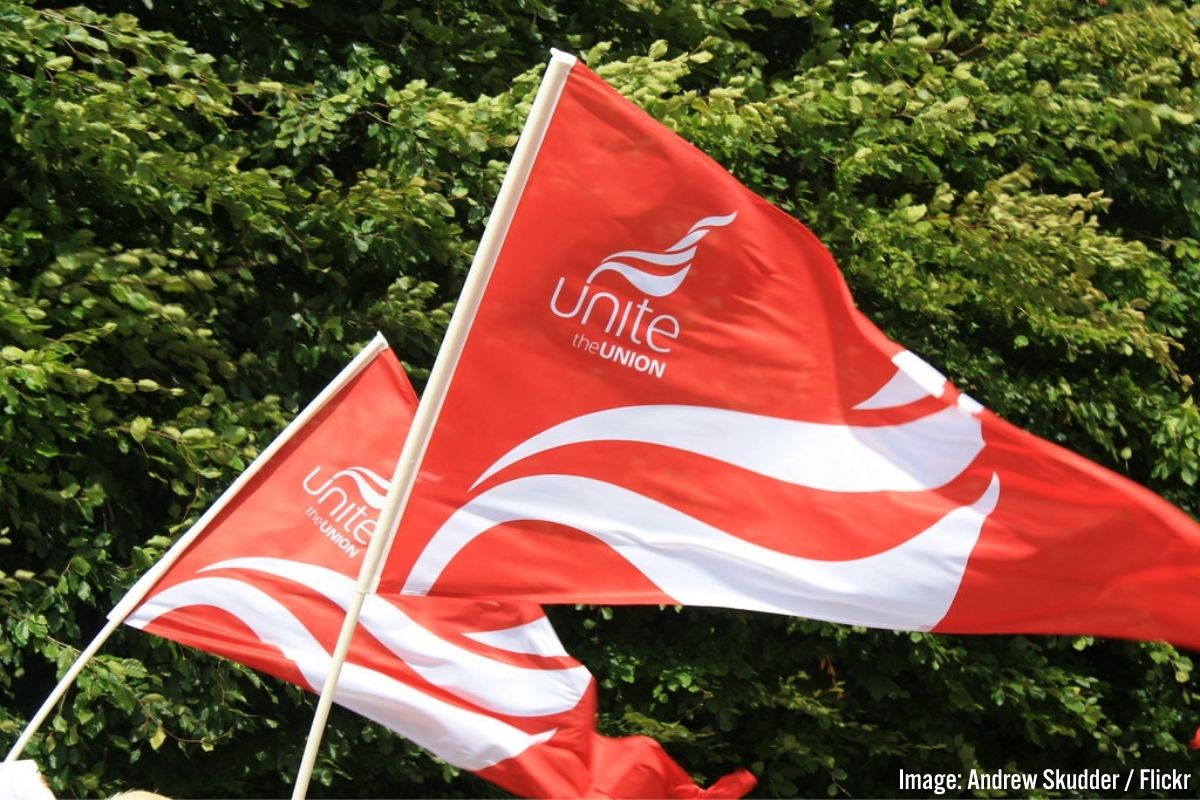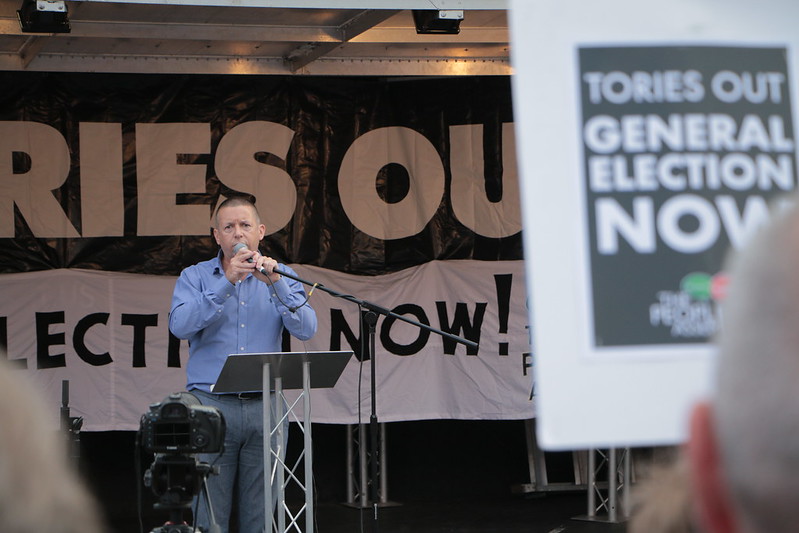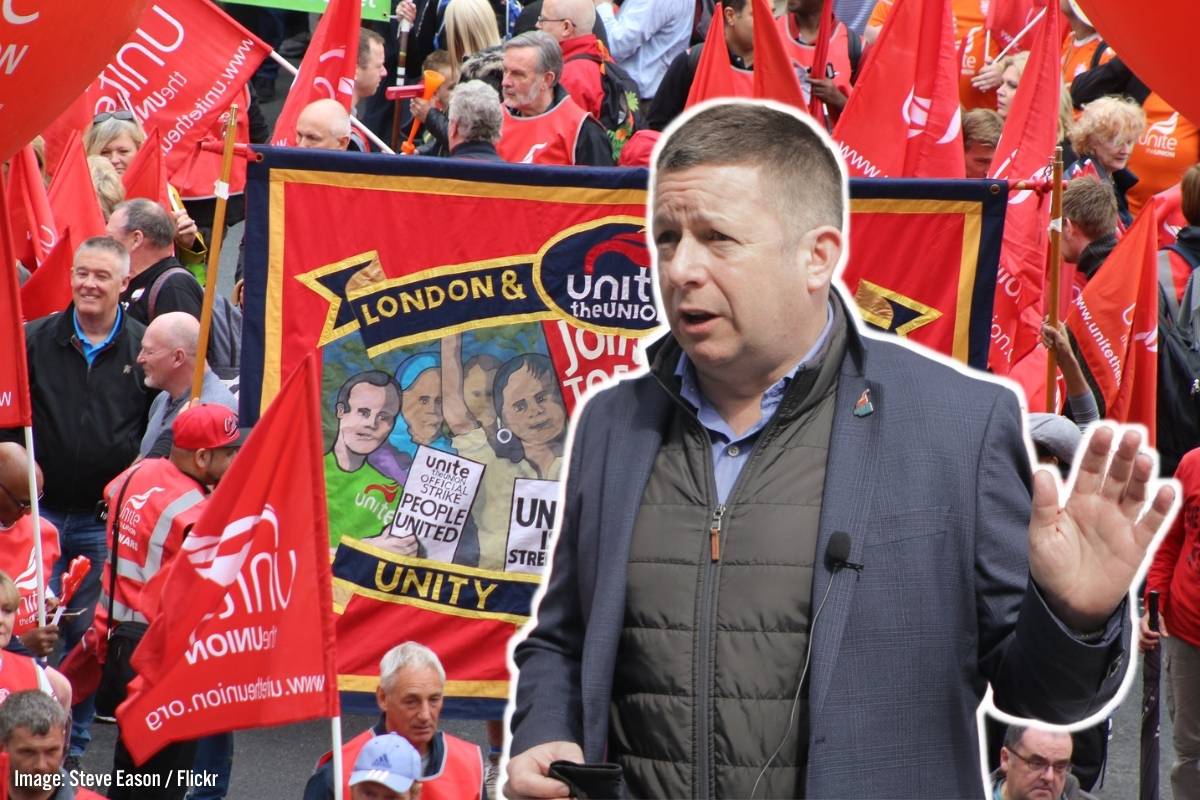Nominations open tomorrow in the race to succeed Len McCluskey as Unite general secretary. Howard Beckett is standing on a fighting programme, both industrially and politically. It is vital that the trade union movement has a militant leadership.
Unite the Union is in the process of electing a new general secretary, to replace the outgoing Len McCluskey, who is set to retire.
This will be a crucial election, which will determine the direction of the union for years to come, and which has important implications for the labour movement as a whole.
Bastion of the left
Unite is one of the biggest unions in Britain, and has positioned itself on the left of the trade union movement. It is also the Labour Party’s biggest trade union affiliate. Under Len McCluskey, Unite became a staunch supporter of Jeremy Corbyn’s Labour leadership.
It is essential that this important political stance is maintained. That is why the right wing, backed by the ruling class, has put so much effort in winning back the union for the establishment.

Their candidate is Gerard Coyne, who, in the last leadership election in 2017, came quite close to beating McCluskey. On a low turnout, Coyne gained 41% of the vote, compared to 45.5% for McCluskey.
However, Coyne was found to be in breach of union rules, and was deemed guilty of bringing the union into disrepute. He was therefore sacked from his position as regional secretary for the West Midlands.
Right-wing threat
However, Coyne is now seeking to stand again, on a ‘time for change’ ticket. He has the backing of former Labour deputy leader Tom Watson, who was at the epicentre of all the plots against Corbyn and the left over the years. Not surprisingly, Coyne supports the Starmer leadership.
Nevertheless, this time round, there is an increased threshold in terms of the amount of branch nominations needed to qualify. As a result, he may not get onto the ballot paper.
However, if he did, and there were three other left candidates, this could split in the left vote, as happened in the recent Unison general secretary elections.
A victory for the right wing would be a disaster, taking the union back to the bad old days of out-and-out class collaboration, industrially and politically.
With such a prospect, the left candidates would have to reconsider their positions. It would be essential that Coyne faces a single left candidate.
Left candidates

At the moment, there are no fewer than three candidates who describe themselves as on the left.
These include: Howard Beckett, who leads the union’s legal department and is on Labour’s National Executive Committee; Sharon Graham, who is the executive officer for the organising and leverage department of the union; and lastly Steve Turner, assistant general secretary responsible for the manufacturing sector.
Each of these candidates have their base of support in the union. Significantly, Steve Turner has the backing of the United Left, the main broad left organisation in Unite, whose supporters dominate the executive committee.
In the race for the UL nomination, however, Turner only managed to pip Beckett by a handful of votes: 370 to 367. Some LU members, meanwhile, said that they did not receive an online ballot. This has cast a shadow over the proceedings.
Workplace struggles
Sharon Graham has pitched herself as a ‘Let’s get back to the workplace’ candidate.
“If Unite is to face the massive challenge of fighting for jobs, fighting for wages, and defending conditions,” Sharon has stated, “it must be built at the workplace as never before.”
While this is true, Sharon has downplayed the political struggle. This represents a shift towards syndicalism, based upon the mood of disillusionment with the Starmer Labour leadership and politics generally.
But this is a backward step. The union should not only be involved in class struggle industrially, but also struggle politically against the right wing in the Labour Party.
Shifting focus
Steve Turner has also called for Unite to shift attention away from the Labour Party. In reality, he means giving ground to Starmer and the right wing.
Turner is trying to pose as the ‘sensible moderate’, keen to negotiate with the employers and the Tories. He is against confrontation. “I’m an inclusive, tolerant, left,” explained Turner in one recent interview with the Huffington Post.
“That conflict that’s there in the Labour Party at the moment, I fear will come into Unite,” Turner continued, “and I fear that some candidates are trying to bring that into Unite.”
He is obviously referring to Howard Beckett, who has taken a far more political and militant approach on these questions.
Howard, while also coming from the union’s officialdom, talks about the class struggle and puts forward the need for a militant industrial strategy, support for members, opposition to fire-and-hire policies, and so on.
As a socialist, he has played a key role on Labour’s NEC – along with others – in combating the shift to the right under Starmer. Instead of calling for ‘unity’ with the right wing, he supported the demand for a recall conference of the party to deal with the current crisis.
For all these reasons, we believe Howard is the best candidate to lead Unite in the coming period.
You work through the crisis, told your work is essential, not given PPE, put yourself in harms way. And then you are told your wages will be slashed by up to £4,000 a year. Familiar?
Collective strength will defeat fire & rehire. Strike action will defeat fire & rehire. pic.twitter.com/uooQJewoIX
— Howard Beckett (@BeckettUnite) April 16, 2021
Fighting leadership
Given Unite’s weight and importance inside the Labour Party and the TUC, it is vital that the union has a fighting leadership; a leadership that is willing to utilise its muscle in advancing the interests of the left and the wider working class – not just industrially, but also politically.
This means organising united and militant action against the Tories and the bosses; and taking the fight to the Labour right, mobilising the left to put Starmer into the “dustbin of history”.
There is every possibility that the left will win in the Unison NEC elections that are currently taking place. Along with a left-wing Unite, this will provide a strong spearhead for the labour movement in the sharp struggles that lie ahead.
Nomination period: 6 May – 7 June
Voting papers sent out: 5 July
Need to be returned to scrutineer: 23 August
Result declared: 26 August






